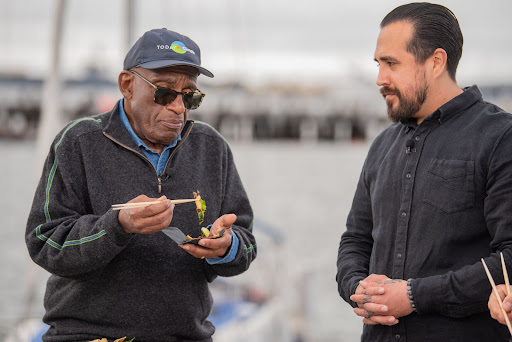Guess who’s in NOAA’s neck of the woods? For Earth Week, Al Roker and the Today Show traveled from California to Connecticut to learn about aquaculture as a climate solution.
The United States imports 75–80 percent of the seafood we eat, and those seafood sources are being impacted by climate change. Aquaculture is a local, sustainable option that doesn’t use much fresh water, fish food, take up much space, or emit greenhouse gasses the way traditional farming can. Eating farmed seafood is good for you, good for the economy, and good for the planet!
“In a changing climate, we need to consider the environmental impacts of what we eat,” said Danielle Blacklock, director of NOAA Fisheries Office of Aquaculture. “Adding more seafood to your diet is a climate-smart, earth-friendly choice, especially if it’s grown here in the United States.”
To showcase the diversity of the United State’s aquaculture industry, Al Roker and his team visited aquaculture efforts in California and Connecticut. They met NOAA, Sea Grant, and farmers from the Port of San Diego and Copps Island Oysters. In San Diego, Roker learned about abalone and how aquaculture can grow as part of the Blue Economy.
In Connecticut, Roker boarded a NOAA Milford Research vessel to visit Copps Island Oysters—the largest oyster operation on the East Coast. It also farms sugar kelp for a line of skincare products. He interviewed Sea Grant seaweed expert Anoushka Concepcion and met with Danielle Blacklock. He also chatted with the Bloom Family about Copps Island Oysters and their seaweed business.
In the face of climate change, the ocean can be a source of climate adaptation and mitigation solutions. They provide benefits like good-paying jobs, sustainable livelihoods and communities, and healthier ocean ecosystems. From abalone restoration to oyster and seaweed farming, aquaculture is an ocean-based climate solution.
Watch the NBC features “How aquafarms combat climate change while raising seafood” on The Today Show!






